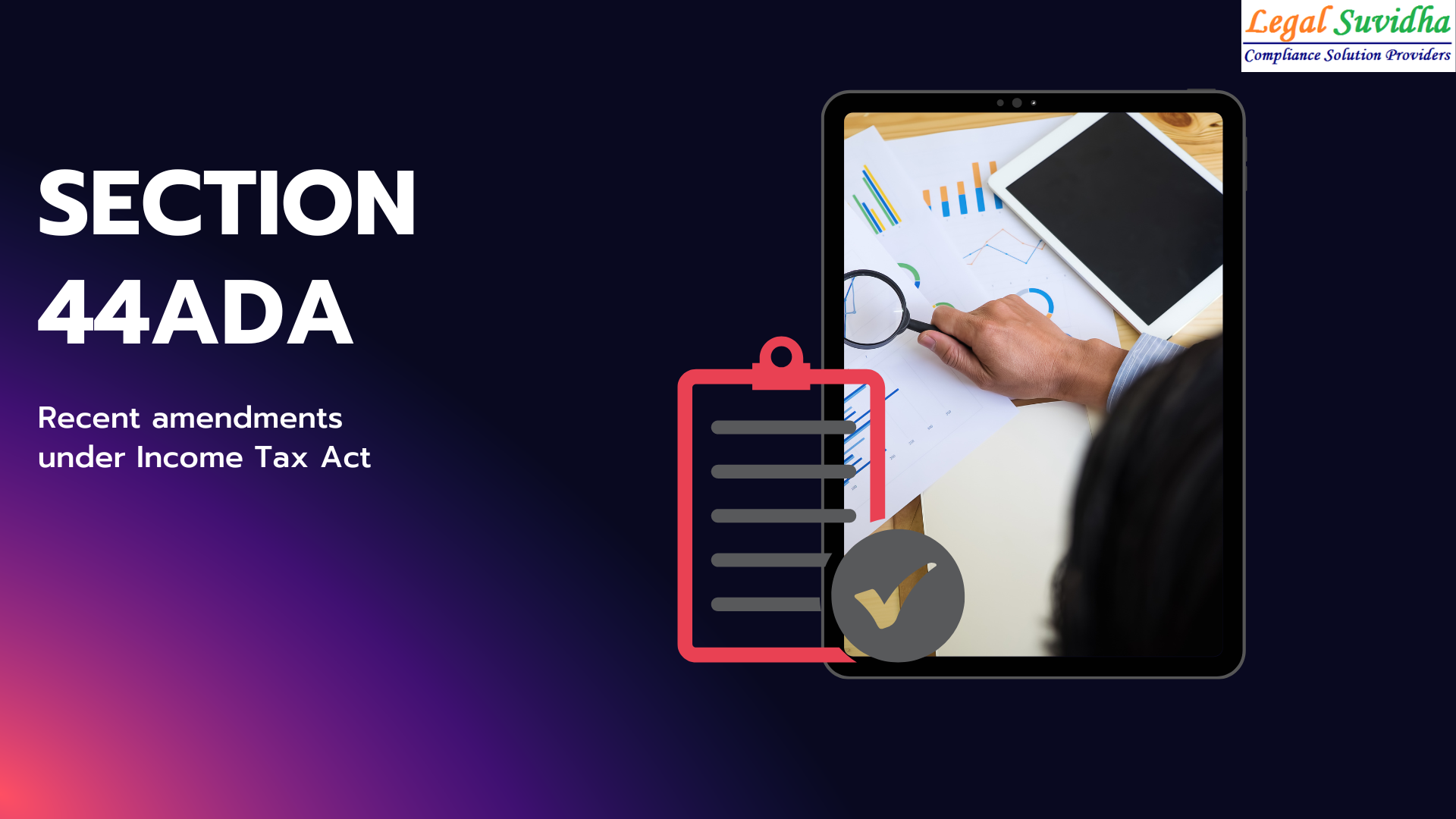SECTION 44ADA: RECENT AMENDMENTS UNDER INCOME TAX ACT
Overview:
Section 44ADA provides a simple method of taxation for small professionals. Section 44ADA offers a scheme of presumptive taxation of profits and gains arising from professions mentioned under Section 44AA(1) of the Income Tax Act, 1961.
The benefit of section 44ADA can be taken only by those specified professionals whose annual gross receipts are under Rs 50 lakh.
What is the purpose of Section 44ADA?
Section 44ADA is a special provision for calculating the profits and gains of small professionals in certain circumstances.
Section 44ADA was introduced to extend the scheme of simplified presumptive taxation to specified professionals. Earlier, the presumptive scheme of tax was applicable only to small business.
The presumptive scheme of taxation reduces the compliance burden on small professions and facilitates ease of doing business. Under the presumptive scheme of taxation, profits are presumed at 50% of the gross receipts.
Who are eligible for section 44ADA?
Professionals mentioned under section 44AA of the Income Tax Act, 1961, whose total gross receipts are less than Rs 50 lakh in a year are eligible beneficiaries.
BENEFITS OF SECTION 44ADA:
By following Section 44ADA, an assessee would get the following benefits:
- No need of maintaining books required under Section 44AA
- No requirement of having accounts audited under Section 44AB
When should an assessee maintain books and get the accounts audited?
If an assessee meets the following criteria, then he/she must maintain books and get accounts audited under section 44AB:
- Income from the profession is offered at a lower rate than 50% of the gross receipts
- The total income of the assessee is more than the basic exemption.
What are the implications of opting for section 44ADA?
All deductions for business expenses are deemed to have been allowed. Once profits are taxed at 50% of the gross receipts, the balance 50% is deemed to be allowed towards all the business expenses of the assessee.
Business expenses may include consumables, cost of services taken from another professional, daily expenses, books, stationery, telephone charges, depreciation on assets (laptop, vehicle, printer, etc.), and any other expense incurred to carry on the profession.
The written down value (WDV) of assets for tax purposes shall be calculated as the depreciation has been allowed each year. This WDV would be the value of the asset for tax purpose in a case where the asset is sold later by the assessee.
Summary of the provisions under section 44ADA of the Act:
1. This provision is applicable to the profession as prescribed u/s 44AA(1) of the Act
2. An individual or a partnership firm can avail this provision those who are doing professions as prescribed u/s 44AA(1) of the Act .
3. This provision is applicable if the Gross receipts of the assessee are unto rupees fifty lakh rupees..
4. The assessee claims his profit earned more than or equal to fifty percent of the gross receipts , The assessee has to maintain the books of account but not required to submit the balance sheet.
5. If the profit shown is less than fifty percent of the gross receipts then he has to get his books audited by a chartered Accountant and submit audit report electronically u/s 44AB(d)







